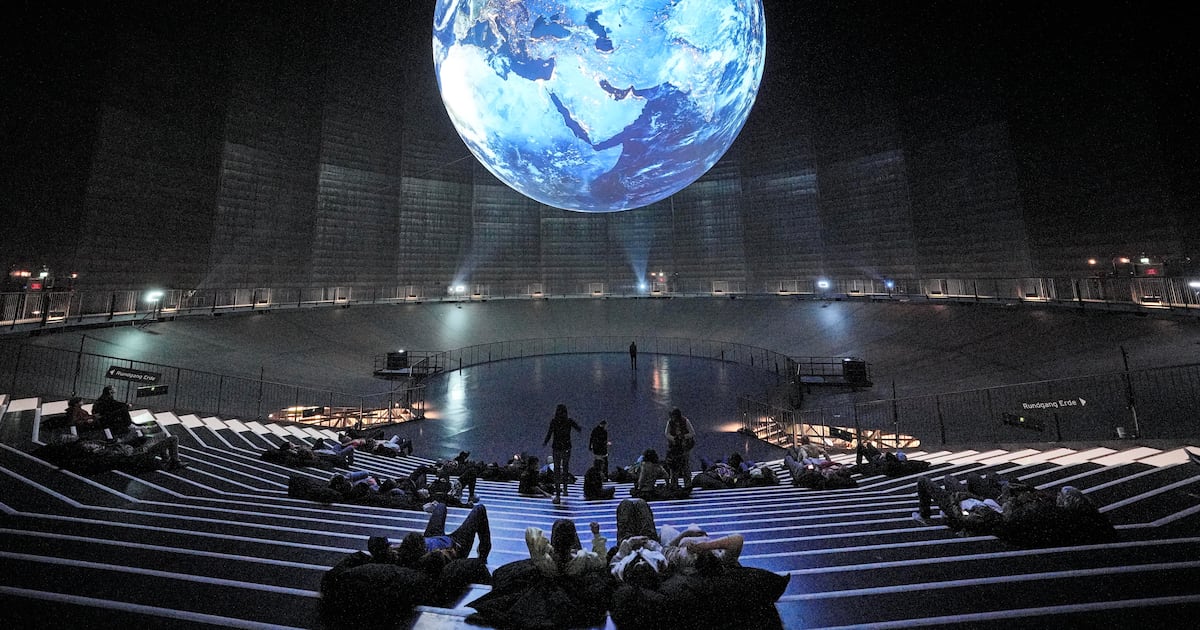Copyright Anchorage Daily News

For decades, humans have fantasized about leaving our planet and colonizing somewhere else in the universe. I didn’t think much about this until I read the Franklin Foer article “The Man Who Ate NASA” in the September issue of The Atlantic. Foer is mainly interested in how Elon Musk has undermined what was once a proud and valuable public agency, turning it into a moneymaker that serves his own purposes. One of those purposes is to leave our planet and settle elsewhere. I was surprised to learn the genesis of the name “Elon.” The German engineer Wernher von Braun, who worked for Hitler building missiles, was recruited to come to the USA to build missiles for us. He wrote a novel depicting a technocracy on Mars, led by a supreme leader named “Elon.” This bit of trivia woke me up. What I once thought of as mildly amusing science fiction is apparently taken seriously by some of our super-wealthy. Their obsession is based on two assumptions. One is that our green planet is inevitably doomed, and we must escape from it. The second is that we must be careful about the genes we ship to the stars, and of course, it is easy to recognize who would qualify. Of the eight billion or more humans on the planet, only a few hundred or so would qualify, and of course, their genetic superiority would be assumed — people like Elon and his numerous children. The rest of us inferiors would go down with the ship. But the assumption that our planet is doomed requires attention. If this planet is doomed, it is only because of us. Life on Earth has existed for at least 3½ billion years, and there is no reason it should end except by human intervention. It came home to me as a shock, while reading about the value of insects, that we humans contribute absolutely nothing to the world. We don’t even allow our dead bodies to be absorbed into the Earth after we have taken so much from it; we have not found a way to return our bodily wastes to the Earth. We consume and only consume. In the words of the great biologist E. O. Wilson, “If all mankind were to disappear, the world would regenerate back to the rich state of equilibrium that existed 10,000 years ago. If insects were to vanish, the environment would collapse into chaos.” Which raises another point. Apparently, the only life that matters to these select colonists is human. No other species has any value. The Jewish and Christian religions both trace their beginnings to a paradise, from which we were expelled, and we can only reenter a paradise after we are dead and make our way to heaven. However, I suggest that our expulsion wasn’t divine or devilish; it was human. We live in a paradise, the only one in the known universe, and if we continue to destroy it more than we already have, it is because we are aliens in paradise; it will only be destroyed by human agency. We humans have managed to badly damage the paradise that we were born into, but it nevertheless remains green and blue, and beautiful and productive. The medieval Christian view of hell was that it is a place of endless, eternal suffering, marked mainly by extreme heat and cold. We know that any and every place in the known universe, other than our planet, exhibits, like hell, unimaginable extremes of heat and cold, as well as an absence of oxygen and water. Why would anyone want to remove themselves from our paradise into the equivalent of hell? Yet that is what these very intelligent people propose. Their exit to hell will be extremely expensive. Foer points out that the lunar project of the 1970s cost $300 billion in 2025 dollars; to get beyond the moon will cost considerably more. In simple, narrow economic terms, preserving paradise would be much cheaper. We would first need to stop doing damage and then invest in recovery. We could do it if we were determined to do it. The human brain is perhaps the most astonishing and powerful 1,400 cubic centimeters of matter in the universe, and there are more than 8 billion of them available right now. We would be able to treat our paradise with proper reverence and respect if this brainpower were properly organized. The problem, of course, is politics. Political decisions can be destructive or beneficial. At the moment, they are unusually destructive, with the Supreme Court and a Republican Congress chipping away at environmental protections. An example is the recent decision by the Trump administration to increase the extraction and burning of coal, the exact wrong thing to do. It is as if someone in the administration seeks to find the very worst things they can do, and exclaims, “Let’s do that!” We humans are of this planet and should see ourselves as part of a continuum with it. As the writer and scientist Loren Eiseley has pointed out, however, what most sets us apart as a species is that we have the capacity to step aside from our biology and instead act as self-conscious determiners of our own fate. It so happens that this is also what makes us moral, or immoral, creatures. This subject of escaping paradise for hell would seem trivial and unworthy of discussion, except that the world’s richest and most powerful people, connected to the world’s most powerful politician, really do want to send themselves to hell in a spacecraft while allowing our paradise to be destroyed. The message is simple: Paradise is doomed. Jeff Bezos says so. Which becomes a self-fulfilling prophecy as he and people like him accelerate destruction instead of using their wealth and influence to prevent it. As all of us have said dozens of times, “Just use your head!”



